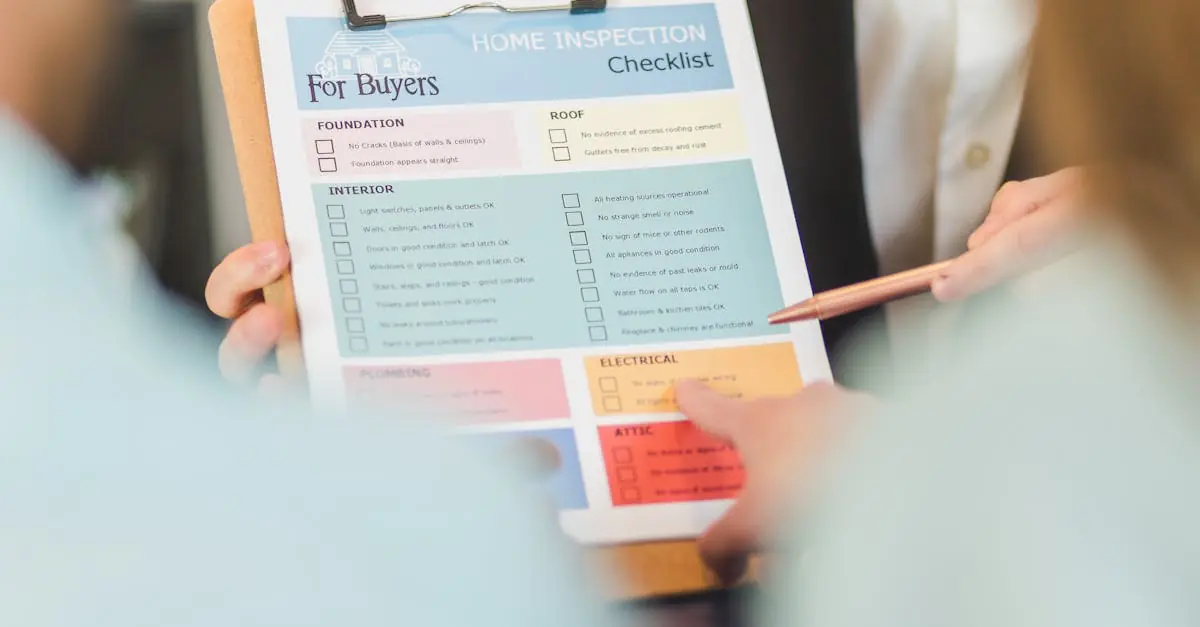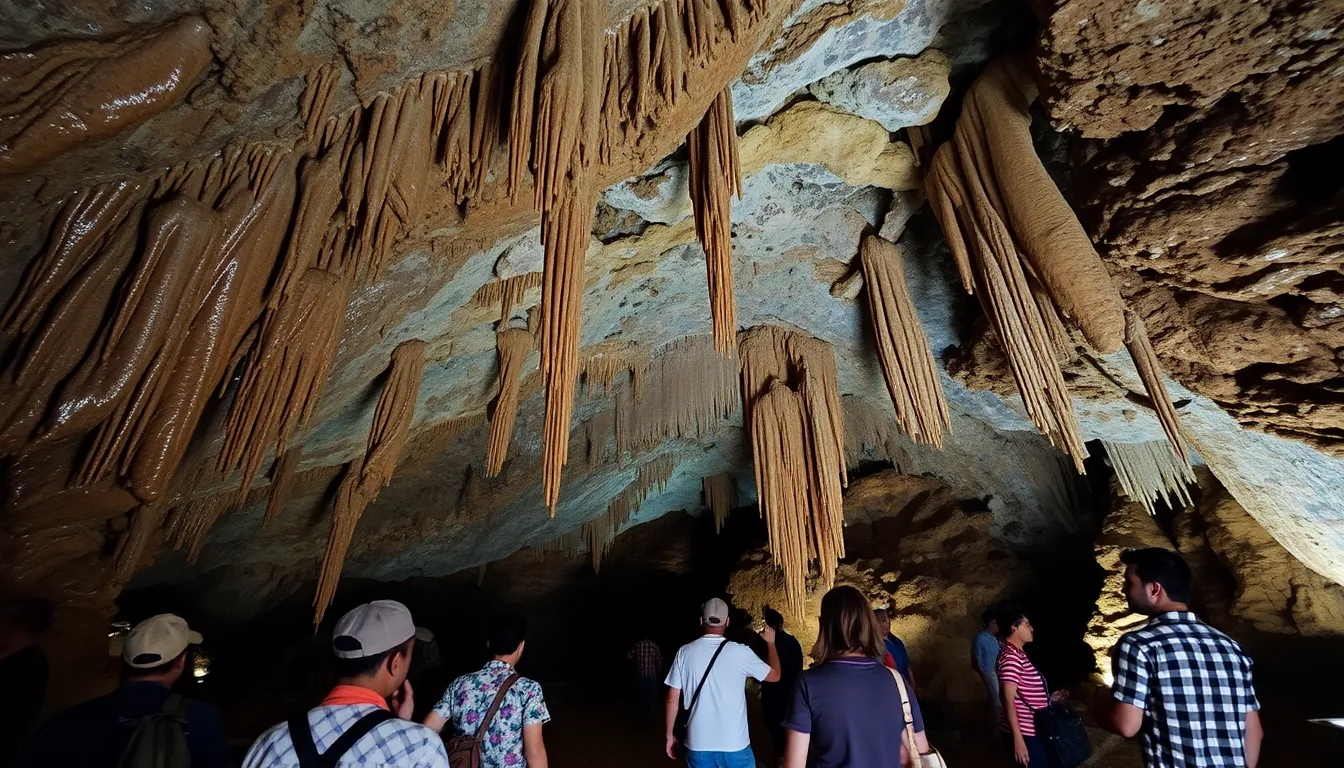When it comes to home plumbing, ignoring the signs can lead to a watery disaster. A small drip today could turn into a mini Niagara Falls tomorrow. That’s where a plumbing inspection comes in, acting like a superhero for your pipes. But before you don your cape and call a plumber, it’s essential to know what you’re getting into, especially when it comes to costs.
Table of Contents
ToggleOverview of Home Plumbing Inspections
Home plumbing inspections identify potential issues before they escalate into costly repairs. Understanding their purpose helps homeowners make informed decisions regarding their plumbing systems.
What Is a Plumbing Inspection?
A plumbing inspection examines the entire system for leaks, blockages, and code violations. Inspectors assess pipes, fixtures, and appliances for proper function. This thorough evaluation typically lasts from 1 to 2 hours, depending on the home’s size and complexity. They check for compromised pipes, water pressure variations, and corrosion signs. Homeowners can expect a detailed report on the inspection findings, outlining necessary repairs or maintenance.
Benefits of Home Plumbing Inspections
Home plumbing inspections offer several advantages. First, they can uncover hidden issues that may lead to severe water damage. Second, these inspections often identify system inefficiencies, allowing for corrective measures that save money on utility bills. Additionally, they provide homeowners peace of mind, ensuring that plumbing systems operate effectively and safely. Regular inspections not only enhance property value but also help maintain optimal water quality, reducing health risks associated with contaminants.
Factors Influencing Home Plumbing Inspection Cost
Several factors impact the cost of home plumbing inspections. Understanding these elements helps homeowners prepare for the potential expenses involved.
Size of the Property
Size plays a significant role in determining inspection costs. Larger properties often require more time and effort to inspect thoroughly. Generally, homes with multiple bathrooms or extensive plumbing systems incur higher fees. Inspectors may charge between $200 to $500 based on property size. Homes with expansive square footage typically demand more resources for a complete assessment. Smaller residences, in contrast, tend to be more affordable, often ranging from $100 to $300.
Age of the Plumbing System
Age directly affects the complexity and cost of plumbing inspections. Older plumbing systems might present hidden issues like corrosion or outdated materials. Inspectors may spend additional time identifying potential problems in these systems. Fees for inspecting an older home often increase, with costs ranging from $300 to $600. Newer plumbing systems generally lead to more straightforward inspections, typically falling within the $100 to $200 range. Recognizing age’s impact helps homeowners anticipate potential costs effectively.
Geographic Location
Geographic location also influences inspection costs. Urban areas typically feature higher service rates due to increased demand and operational costs. Inspectors in cities often charge between $250 and $600 for a thorough assessment. Rural homes may see lower fees, often ranging from $100 to $300. Local regulations and availability of skilled labor can also affect pricing variations. Understanding these factors allows homeowners to budget effectively for plumbing inspection expenses.
Typical Costs Associated with Plumbing Inspections
Costs for plumbing inspections can vary widely based on several factors. Understanding these costs helps homeowners budget effectively and avoid surprises during the inspection process.
Flat Rate vs. Hourly Charges
Plumbing inspection fees can be structured as flat rates or hourly charges. Flat rates typically range from $100 to $500, depending on property size and complexity. Hourly charges can average between $75 to $150 per hour, making the total variable based on inspection duration. Inspectors often complete assessments within 1 to 2 hours. Homeowners should clarify the pricing model before scheduling to avoid misunderstandings.
Additional Fees to Consider
Additional fees may arise during plumbing inspections. Travel fees can apply if inspectors cover significant distances, estimated at $50 to $100. Specialized equipment usage may incur extra charges, especially for video camera inspections, averaging $150 to $300. Homeowners may also face costs for repairs or follow-up services recommended after the inspection. Always ask about potential additional fees to ensure transparency in overall expenses.
How to Choose a Plumbing Inspector
Selecting a qualified plumbing inspector involves careful consideration of various factors. Homeowners should prioritize qualifications and experience, along with customer feedback.
Qualifications and Experience
Look for inspectors with relevant certifications, ensuring they meet state licensing requirements. Inspectors often possess training in plumbing systems, building codes, and safety regulations. Experience plays a key role; seasoned inspectors have likely encountered various plumbing challenges. Choose inspectors that specialize in residential plumbing for a more tailored assessment. Reviewing their history of inspections adds further assurance of competence. Homeowners should ask about the number of inspections completed and specific areas of expertise.
Customer Reviews and Recommendations
Seek out customer feedback before making a decision. Reading reviews on reputable sites provides insights into an inspector’s reliability and professionalism. Positive ratings and repeat customers typically indicate satisfactory service. Contacting previous clients for firsthand recommendations can yield valuable information about the inspector’s thoroughness and efficiency. Word-of-mouth referrals from trusted friends or family members often eliminate uncertainty. Always consider both the overall rating and specific comments to form a well-rounded perspective.
Investing in a home plumbing inspection is a proactive approach to maintaining a safe and efficient plumbing system. By understanding the costs involved and the factors that influence them, homeowners can make informed decisions. The right inspector can uncover hidden issues that may lead to costly repairs down the line. Prioritizing qualifications and customer feedback ensures that homeowners choose a reliable professional for their needs. Ultimately, a thorough plumbing inspection not only protects property value but also enhances overall water quality and efficiency.




